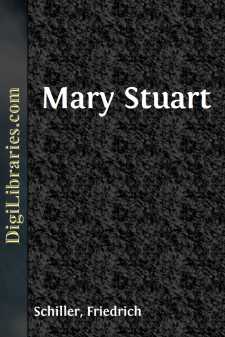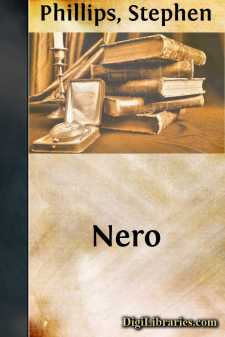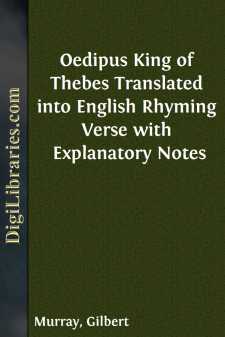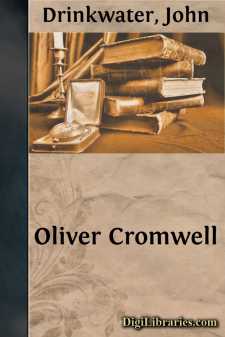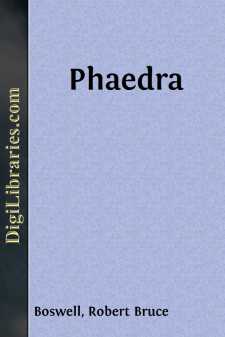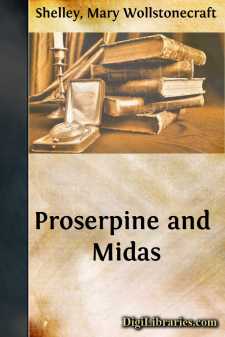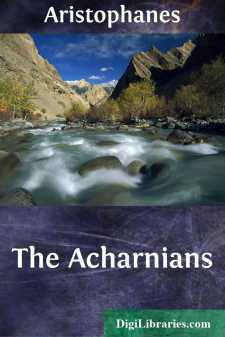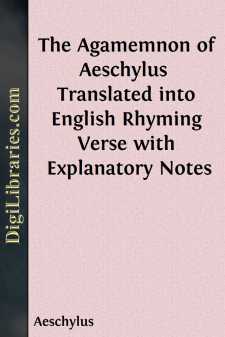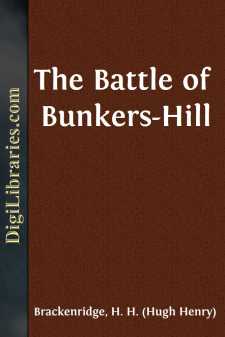Drama
- American 43
- Ancient, Classical & Medieval
- Asian 7
- Caribbean & Latin American 2
- Continental European 50
- English, Irish, Scottish, Welsh 91
- General 105
- Middle Eastern 1
- Religious & Liturgical 1
- Shakespeare 1
Ancient, Classical & Medieval Books
Sort by:
SCENE I. A common apartment in the Castle of Fotheringay. HANNAH KENNEDY, contending violently with PAULET, who is aboutto break open a closet; DRURY with an iron crown. KENNEDY.How now, sir? what fresh outrage have we here?Back from that cabinet! PAULET.Whence came the jewel?I know 'twas from an upper chamber thrown;And you would bribe the gardener with your trinkets.A curse on woman's...
more...
by:
Stephen Phillips
ACT I SCENE.—The scene is in the Great Hall in the Palace of the Caesars. At the back are steps leading to a platform with balustrade opening on the air, and beyond, a view of the city. [On the right of the stage is a cedarn couch on which CLAUDIUS is uneasily sleeping. On the right is a door communicating with the inner apartments. On the left a door communicating with the outer halls. [XENOPHON is...
more...
by:
Gilbert Murray
PREFACE If I have turned aside from Euripides for a moment and attempted a translation of the great stage masterpiece of Sophocles, my excuse must be the fascination of this play, which has thrown its spell on me as on many other translators. Yet I may plead also that as a rule every diligent student of these great works can add something to the discoveries of his predecessors, and I think I have been...
more...
by:
John Drinkwater
SCENE ICromwell'shouse at Ely, about the year 1639. An early summer evening. The window of the room opens on to a smooth lawn, used for bowling, and a garden full of flowers.Oliver'swife,Elizabeth Cromwell, is sitting at the table, sewing. In a chair by the open windowMrs. Cromwell, his mother, is reading. She is eighty years of age.Mrs. Cromwell:Oliver troubles me, persuading everywhere....
more...
by:
Aristophanes
SCENE: A farmyard, two slaves busy beside a dungheap; afterwards, in Olympus. FIRST SERVANT Quick, quick, bring the dung-beetle his cake. SECOND SERVANT Coming, coming. FIRST SERVANT Give it to him, and may it kill him! SECOND SERVANT May he never eat a better. FIRST SERVANT Now give him this other one kneaded up with ass's dung. SECOND SERVANT There! I've done that too. FIRST SERVANT And...
more...
INTRODUCTORY NOTE JEAN BAPTISTE RACINE, the younger contemporary of Corneille, and his rival for supremacy in French classical tragedy, was born at Ferte-Milon, December 21, 1639. He was educated at the College of Beauvais, at the great Jansenist school at Port Royal, and at the College d'Harcourt. He attracted notice by an ode written for the marriage of Louis XIV in 1660, and made his first...
more...
INTRODUCTION. I. ‘The compositions published in Mrs. Shelley’s lifetime afford but an inadequate conception of the intense sensibility and mental vigour of this extraordinary woman.’ Thus wrote Dr. Garnett, in 1862 (Preface to his Relics of Shelley). The words of praise may have sounded unexpectedly warm at that date. Perhaps the present volume will make the reader more willing to subscribe, or...
more...
by:
Aristophanes
INTRODUCTION This is the first of the series of three Comedies—'The Acharnians,' 'Peace' and 'Lysistrata'—produced at intervals of years, the sixth, tenth and twenty-first of the Peloponnesian War, and impressing on the Athenian people the miseries and disasters due to it and to the scoundrels who by their selfish and reckless policy had provoked it, the consequent...
more...
by:
Aeschylus
PREFACE The sense of difficulty, and indeed of awe, with which a scholar approaches the task of translating the Agamemnon depends directly on its greatness as poetry. It is in part a matter of diction. The language of Aeschylus is an extraordinary thing, the syntax stiff and simple, the vocabulary obscure, unexpected, and steeped in splendour. Its peculiarities cannot be disregarded, or the translation...
more...
HUGH HENRY BRACKENRIDGE (1748-1816) The battle of Bunker's Hill was an event which stirred whatever dramatic activity there was in America at the time of the Revolution. Therefore, a play written on the subject should not be omitted from a collection supposed to be representative of the different periods in American history and in American thought. The reader has an interesting comparison to make...
more...


